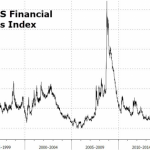Government data published Tuesday revealed that the country’s labor shortage has reached its most extreme level in more than 40 years. Japan now has 1.48 jobs for every applicant. That’s the highest number since 1974, when rapid growth pushed the ratio to 1.53. It also exceeds the labor shortage peak Japan hit during its economic bubble years in the early 1990s.” (Japan Limited Immigration; Now It’s Short of Workers, NYT, FEB. 10, 2017)
“Abe’s policies have nudged birth rates higher, but the long-run fertility rate of 1.44 births per woman is still well below the replacement rate. Researchers say that to maintain the current population, Japan would have to let in more than half a million immigrants a year. (It took in 72,000 in 2015.) In a society as insular and homogeneous as Japan, any such increase would be a very tall order.” (Bloomberg, April 17, 2017)
In most countries, Japan’s May 3.1% unemployment rate would be an object of envy and signal a robust economic expansion. But, if anything, in Japan it also signals real problems.
The economy grew at a 1% annual rate in the first quarter of 2017, and is expected to continue to grow in the 1% range next year. However, consumer prices fell 0.4% in May on a year over year basis and the price deflation worries remain.
Behind much of what is going on is the fact that the number of working-age Japanese has been falling since the mid-1990s, a consequence of decades of low birth rates. A rise in life expectancy and lower birth rates have created an aging population and dwindling work force in Japan, posing a threat to the country’s future economic growth. Japan is also notoriously averse to the idea of using immigration to offset its population decline.
Ironically, Japan long ago achieved what President Trump has promised on immigration. Japan has very little illegal immigration and is officially closed to seeking blue-collar workers from abroad.
Indeed, Japan has always had a very tough stance on immigration, both legal and illegal, which is causing many problems as many Japanese industries to suffer severe labor shortages, which has helped put a brake on economic growth.
















Leave A Comment